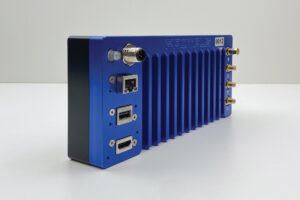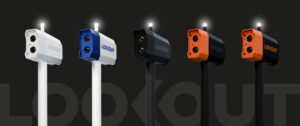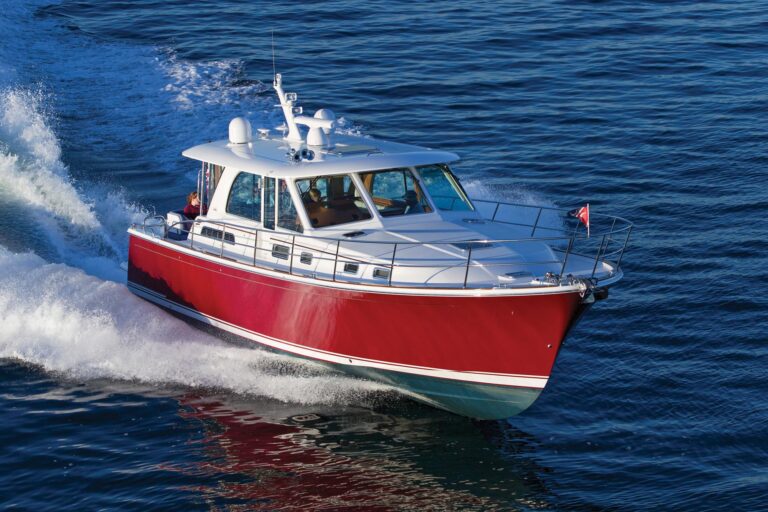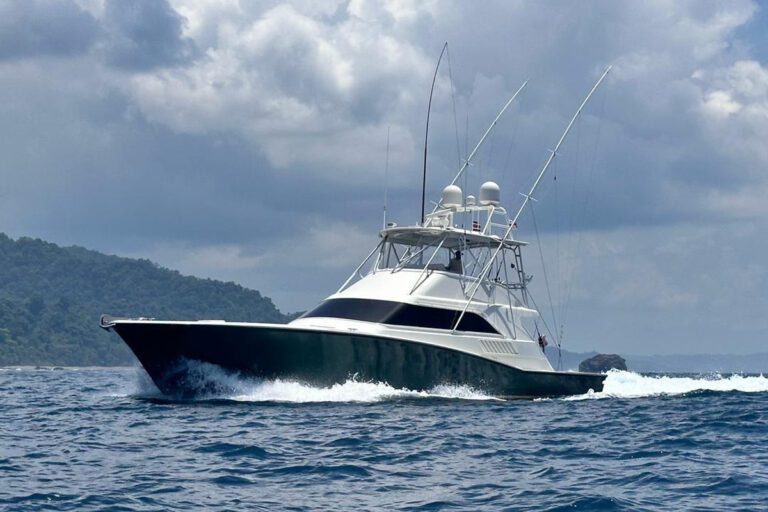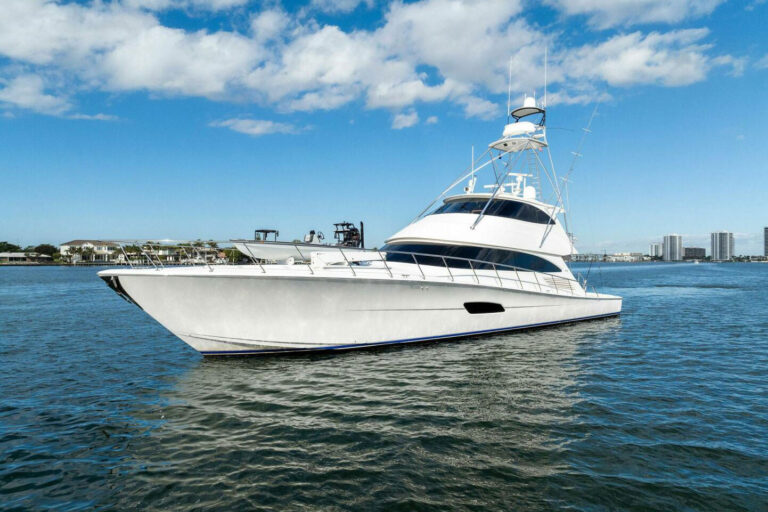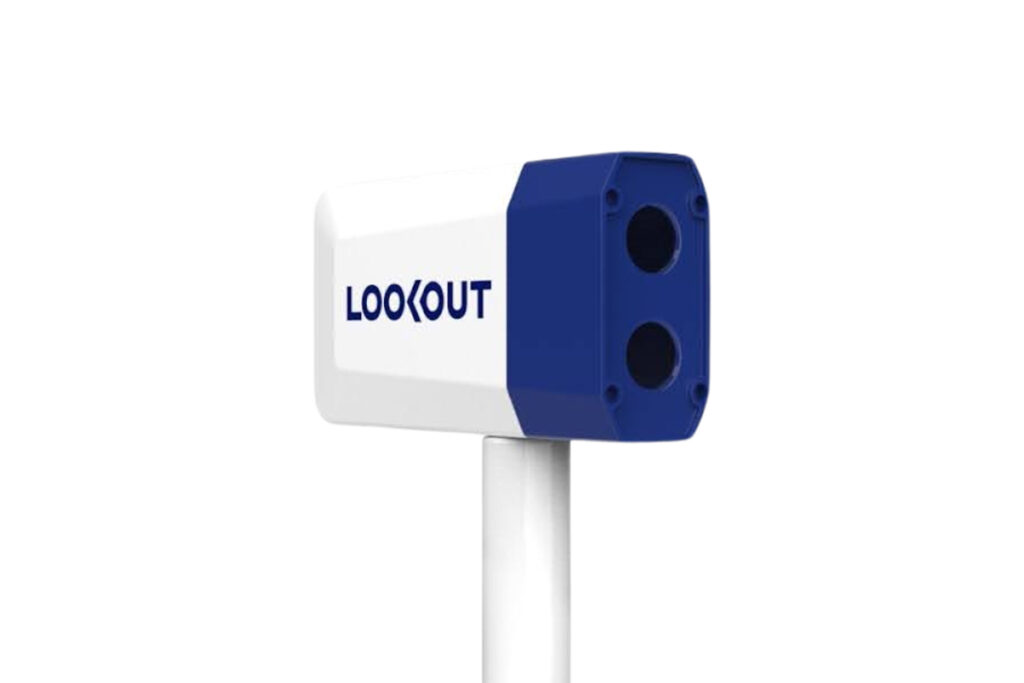
A team of AI researchers, video-game developers, 3D designers and hardware engineers has created the Lookout camera system, which is intended to detect marine hazards “beyond human capability.”
The Lookout camera system uses computer vision algorithms to find and track marine hazards, including other vessels, buoys, debris, whales and people in the water. The system combines data from charts, AIS, radar target and online sources into a 3D augmented reality view.
According to the Lookout team, this system reduces the captain’s cognitive load and enhances situational awareness, making decision-making more efficient while underway.
The Lookout system also uses data from other NMEA-compatible sensors, and it integrates with modern multifunction displays from Garmin, Furuno, Raymarine and Simrad, as well as with smartphones.
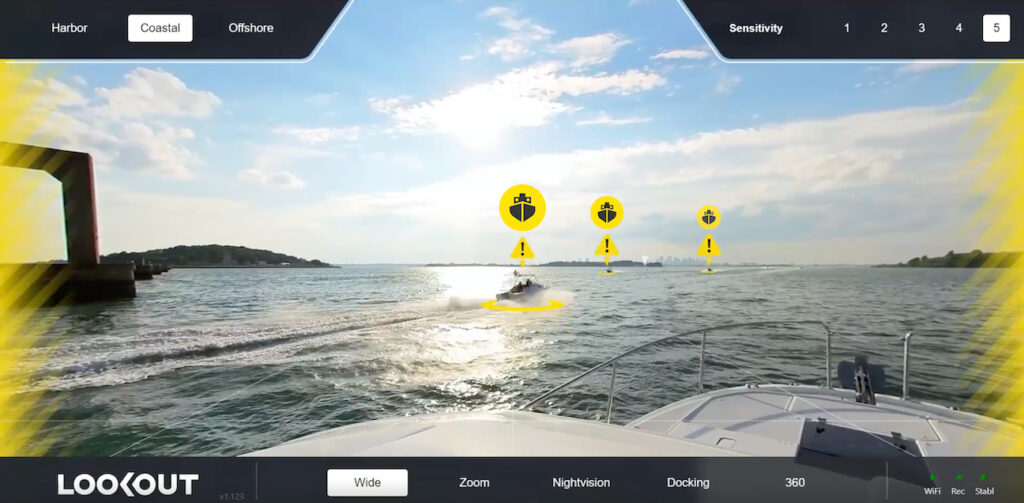
“We’re living in an era where AI, augmented reality, and spatial computing are transforming navigation and safety,” David Rose, Lookout’s CEO, stated in a press release. “Boating should benefit from the same innovation we see in automotive and aerospace. Lookout integrates AI tech with intuitive, beautiful and beneficial software design, providing clarity especially in challenging conditions like low light, fog and crowded harbors.”
The Lookout system has three components: a camera with infrared night-vision, high-resolution daylight zoom and 360-degree views for docking; a “brain” powered by Nvidia technology for processing multiple data streams and creating the augmented reality view; and an optional cloud service for boats with Starlink or other internet connections, to enable community-driven data sharing.
Rich Miner, inventor of Android, a Google Ventures partner and an avid boater, said he invested in Lookout “not only because of its potential in recreational boats, but also because it’s a must-have technology for ferries worried about hitting logs, law enforcement and military vessels, inland tugs and workboats.”
Tod Tally, general manager of the Viking Yachts subsidiary Atlantic Marine Electronics, is also helping to promote the system. “Lookout’s sensing and data-sharing capability is what boats need today,” he stated in the company’s press release. “Knowing when a nearby boat detects a floating log or a whale is a game changer. Like Waze, it provides a network of lookout eyes on the water, ensuring everyone’s safety.”
What is the pricing for the Lookout system? The camera retails for $3,995. Customers can choose between the Lookout Brain for $4,995 and the Brain Pro for $9,995, with the Pro version offering higher frame rates and resolution for detecting smaller, more distant targets.
Take the next step: go to getalookout.com


